The thousands of gaming enthusiasts who turned out in force at the recent Taipei Game Show to smash their way through the latest PC and console games weren't the show's only winners.
In a break from past shows, some of the exhibition's biggest hits were games developed, produced and manufactured here in Taiwan.
This was the first time since the show's inception that the popularity of local game developers like TWP (第三波), Softstar (大宇) and XPec (樂陞科技) over-shadowed the gaming giants from Japan and Korea that previously stole most of the attention.
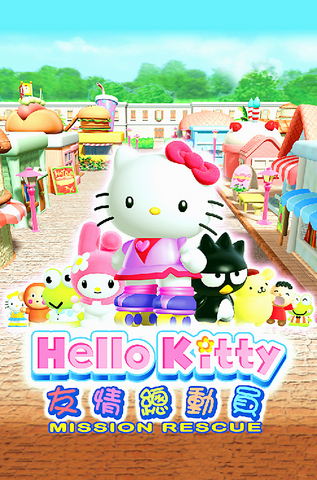
PHOTOS COURTESY OF XPEC ENTERTAIMENT
One of the most prominent players in the advancement of Taiwan's gaming industry has been TWP, whose online game Mahjong Palace (戲谷麻將館), released in 2002, has seen success domestically and internationally that has taken even the company by surprise.
The award-winning game currently has 20,300 casual users in Taiwan and over 25,000 overseas logging on to play on any given day. Since the release of its first-generation online mahjong game, the company has up to 4 million registered users worldwide.
"We've proved that the market for casual online games is massive. Both production and retail costs of online games are cheap in comparison to those of stand-alone PC games and pirating of them is impossible," said Chou Mou-shyh, vice president of TWP Corp.
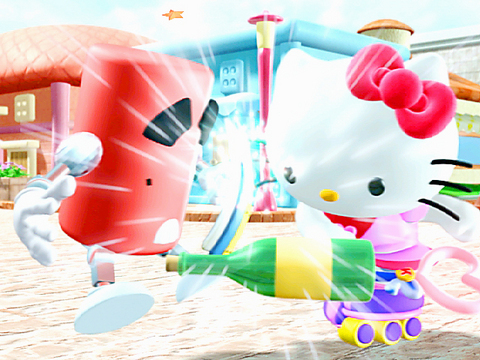
Due to Taiwan's strict anti-gambling laws, all of TWP's mahjong games rely on virtual winnings. Players pay an initial log-on fee, but after that all winnings remain imaginary and no real cash changes hands.
"We plan to develop a children's online game in the near future. With the number of youngsters who own computers increasing every year, the market for such games is bottomless," Chou said.
Another local crowd-puller was Softstar, whose Monopoly 7 (大富翁七) took top honors in the Stand Alone category at this year's Game Star Awards.
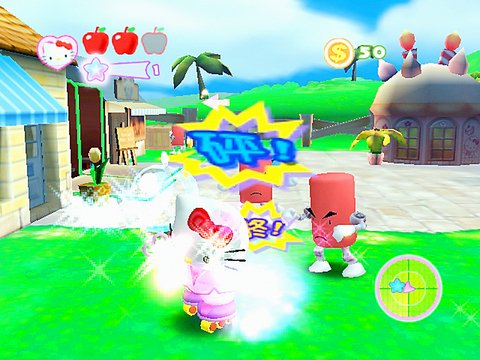
Established in 1988, Softstar has notched up an impressive record of award-winning titles since 1995, when Taiwan's first game awards were held.
The company has a string of hits that includes Sky Sword (軒轅劍) and Angel Republic (天使帝國) and continues to produce some of the most popular local games.
Uncertain future
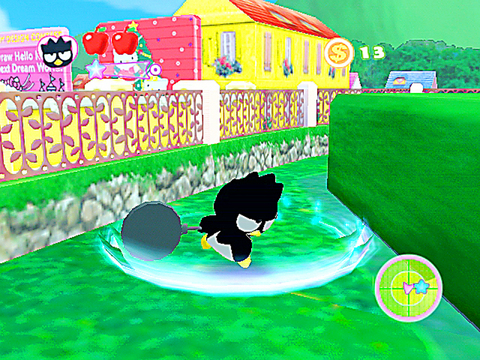
The recent game show proved that there is currently a huge market for PC games. But according to industry insiders, local PC game developers may be facing a less favorable future.
The future of gaming in Taiwan, they say, looks set to center around the world's three leading console systems -- Sony's PS series, Microsoft's X-Box and Nintendo's Game Cube.
According to longtime gamer Lucifer Chu (朱學燴), breakthroughs in computer-graphic capability means that PC gamers whose machines aren't up to speed or don't have the latest graphics card could be left out in the cold.
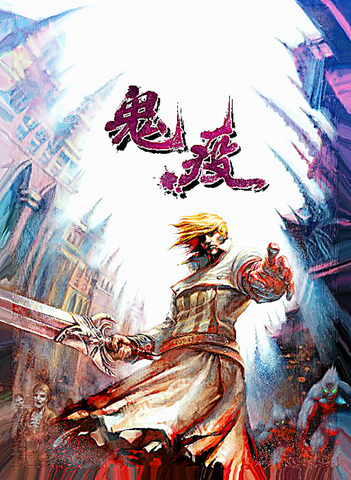
PHOTO COURTESY OF XPEC ENTERTAIMENT
"You might pay an average of NT$1,000 for a game, but when you consider that in addition to this you have to pay another couple of thousand for the latest 3D graphics card or sound booster, then gamers will eventually turn to console systems, which don't require any such modifications."
PC gamers' constant need to upgrade hasn't gone unnoticed by console game manufacturers. In a lesson learned from PC-game manufacturers, which first began marketing localized versions of PC games four years ago, console manufacturer Microsoft is now marketing versions of its international console hits specifically for the Taiwan market.
"For a long time, local console gamers have had to play either English or Japanese-language versions of the top games simply because they had no choice," said Cary Chen (陳傑樺) of Microsoft Taiwan.
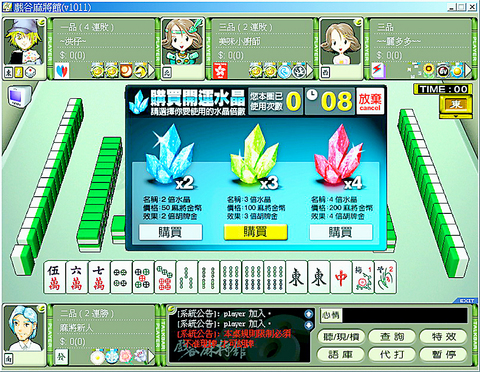
PHOTOS COURTESY OF TWP
"Now we're seeing more and more local and localized games entering the marketplace," he said.
According to Chen, until as recently as two years ago, local gamers' purchasing and playing habits were easy to predict. The company's top-selling Western games in Taiwan were driving and fighting games with little if any storyline and hence little English to deal with.
This meant that until very recently, local gamers had been unable to enjoy the blistering action of games such as the hit adventure shooter, Oddworld: Stranger's Wrath and TV-related games like CSI. Sales of such games have been negligible.
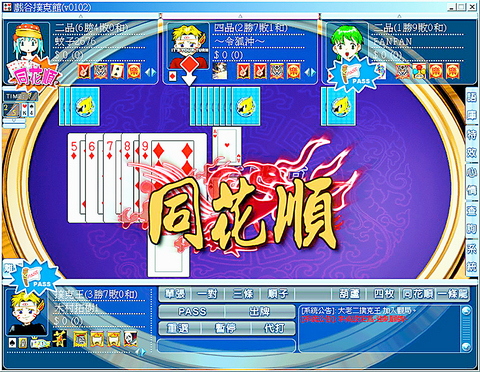
Despite having very few localized titles, Sony remains the market leader in console gaming in Taiwan. Its PS2 system continues to dominate, with a 53-percent share of the console market compared to Microsoft's X-Box, which currently has a 35-percent market share. Sony's lead could be slashed in the near future, however, as more and more gamers turn to Microsoft's localized games.
"I think [Microsoft's] new marketing strategy, which is based on localization, will close the gap as Chinese-speaking gamers realize there is a market specially designed for them."
New products
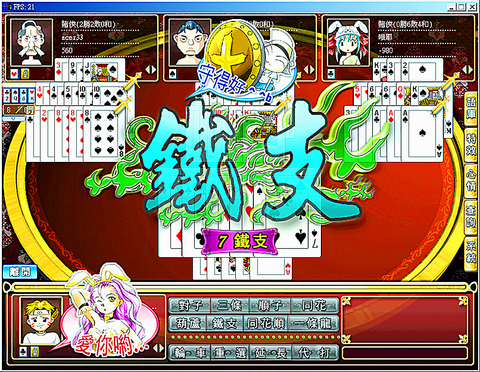
Microsoft Taiwan's Chinese-language games include hits like Project Gotham, Fable and Payload II. Despite having localized some of its games, Microsoft does not expect to expand its market share to reach that of Singapore, where the X-Box console enjoys a 70-percent market share.
"Historically, Taiwan has always been closer to Japan than to the West and gaming trends have mirrored this in Taiwan," Chen said.
"Because of the popularity of Japanese comic books, gamers have, and still do, opt to play games based on Japanese comic book heroes," he said.

PHOTO: GEORGE TSORNG, TAIPEI TIMES
One local company to successfully capitalize on the local market's affinity for Japanese comic books is XPec Entertainment, which produced the first X-Box game to be developed and produced Taiwan in 2003.
Titled EX-Chaser in Asia and Blackstone: Magic and Steel in Europe and the US, the role-playing/puzzle-solving game was a hit in Japan, where it was the sixth bestselling X-Box game in 2003. XPec repeated this success a year later with the first X-Box Online-enabled game Daemon Vector.
Already one of Taiwan's leading console-game developers, XPec hopes to increase its global standing in the coming months with the first 3D third-person adventure game to feature the popular Japanese cartoon character Hello Kitty.
Hello Kitty: Mission Rescue took XPec two and half years and a staggering US$2.5million to develop. It has been translated into three languages -- Chinese, Japanese and English -- and is expected to be a huge hit with gamers when released in Asia in the coming months.
Most importantly for Taiwan's fledgling console-game developers, Mission Rescue is expected to put them on the map and prove to the world that Taiwan, like Japan, is a credible place for console developers to produce cutting-edge games.
"Be it in Asia, Europe or the US, the future of gaming is in the console market. The next generation X-Box and PS systems will be released within two years and nothing currently on the market will be able to compete with them," said Tony Wang (王彥凱), producer of Hello Kitty: Mission Rescue.
"Next generation console systems will blow everything else out of the water," he said.

May 26 to June 1 When the Qing Dynasty first took control over many parts of Taiwan in 1684, it roughly continued the Kingdom of Tungning’s administrative borders (see below), setting up one prefecture and three counties. The actual area of control covered today’s Chiayi, Tainan and Kaohsiung. The administrative center was in Taiwan Prefecture, in today’s Tainan. But as Han settlement expanded and due to rebellions and other international incidents, the administrative units became more complex. By the time Taiwan became a province of the Qing in 1887, there were three prefectures, eleven counties, three subprefectures and one directly-administered prefecture, with

It’s an enormous dome of colorful glass, something between the Sistine Chapel and a Marc Chagall fresco. And yet, it’s just a subway station. Formosa Boulevard is the heart of Kaohsiung’s mass transit system. In metro terms, it’s modest: the only transfer station in a network with just two lines. But it’s a landmark nonetheless: a civic space that serves as much more than a point of transit. On a hot Sunday, the corridors and vast halls are filled with a market selling everything from second-hand clothes to toys and house decorations. It’s just one of the many events the station hosts,

Among Thailand’s Chinese Nationalist Party (KMT) villages, a certain rivalry exists between Arunothai, the largest of these villages, and Mae Salong, which is currently the most prosperous. Historically, the rivalry stems from a split in KMT military factions in the early 1960s, which divided command and opium territories after Chiang Kai-shek (蔣介石) cut off open support in 1961 due to international pressure (see part two, “The KMT opium lords of the Golden Triangle,” on May 20). But today this rivalry manifests as a different kind of split, with Arunothai leading a pro-China faction and Mae Salong staunchly aligned to Taiwan.

Two moves show Taichung Mayor Lu Shiow-yen (盧秀燕) is gunning for Chinese Nationalist Party (KMT) party chair and the 2028 presidential election. Technically, these are not yet “officially” official, but by the rules of Taiwan politics, she is now on the dance floor. Earlier this month Lu confirmed in an interview in Japan’s Nikkei that she was considering running for KMT chair. This is not new news, but according to reports from her camp she previously was still considering the case for and against running. By choosing a respected, international news outlet, she declared it to the world. While the outside world